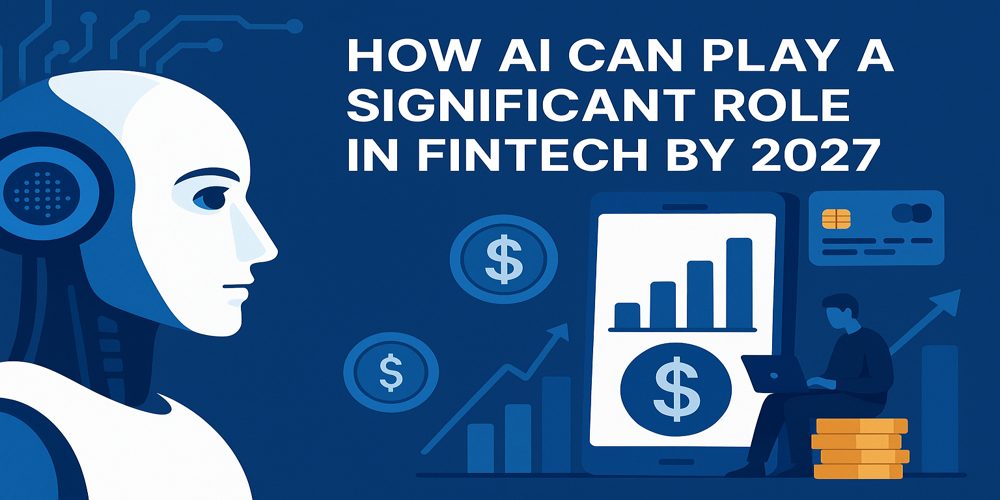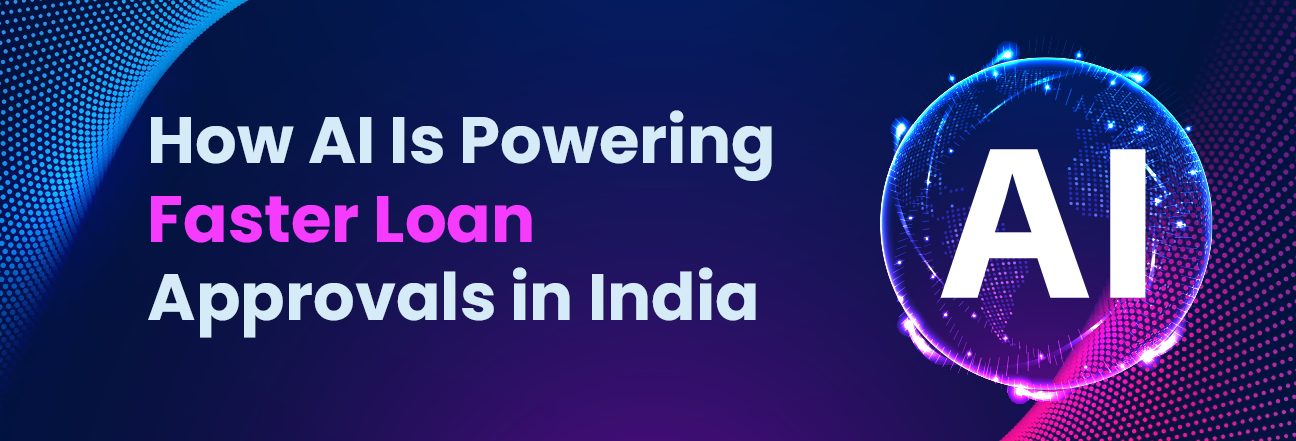How AI Can Play a Significant Role in Fintech by 2027

The financial technology (fintech) sector has been undergoing rapid transformation, and artificial intelligence (AI) is at the heart of this revolution. As AI continues to evolve, its applications in fintech are expected to become even more sophisticated by 2027. From improving customer experiences to optimizing risk management, AI is poised to redefine the financial landscape. In this article, we will explore the major ways AI will shape fintech by 2027 and the impact it will have on financial intermediaries, including DSA Partner networks and Loan Agents.
1. AI-Driven Personalization in Financial Services
One of the most significant advancements AI will bring to fintech is hyper-personalization. By 2027, AI will enable financial institutions to provide highly tailored products and services based on an individual’s spending habits, financial goals, and risk appetite. Machine learning (ML) algorithms will analyze vast amounts of data to predict customer needs and offer personalized recommendations in real-time.
For example, AI-powered chatbots and virtual assistants will engage customers in natural conversations, helping them find the best financial products without human intervention. This will not only improve customer satisfaction but also increase conversion rates for financial institutions and Loan Agents.
2. AI-Enhanced Credit Scoring and Risk Assessment
Traditional credit scoring models rely on limited financial history, often leading to the exclusion of borrowers with insufficient credit data. By 2027, AI-driven alternative credit scoring models will become mainstream, leveraging big data from social media, transaction histories, and behavioral patterns to assess creditworthiness more accurately.
This advancement will benefit DSA Partners and Loan Agents, as AI-powered credit scoring will enable them to serve a broader customer base, including first-time borrowers and small business owners who may not have extensive credit histories. With AI, financial institutions can make quicker lending decisions while minimizing risks.
3. Fraud Detection and Cybersecurity Advancements
As digital transactions continue to rise, so does the risk of financial fraud. AI-powered fraud detection systems will become more advanced by 2027, using real-time data analysis to identify suspicious activities and prevent fraudulent transactions before they occur.
Machine learning algorithms will detect anomalies in transaction patterns, flagging potential fraud with greater accuracy than traditional rule-based systems. AI will also enhance biometric authentication, such as facial recognition and fingerprint scanning, to ensure secure financial transactions. These advancements will significantly reduce fraud-related losses for financial institutions and their partners.
4. Automation of Financial Advisory Services
AI-powered robo-advisors will become more intelligent and widely adopted by 2027, offering automated financial planning and investment advice. These systems will analyze market trends, customer risk profiles, and investment goals to provide data-driven recommendations with minimal human intervention.
This shift will enable Loan Agents and financial advisors to focus on complex cases while allowing AI to handle routine advisory tasks. With real-time portfolio adjustments and predictive analytics, AI-driven advisory services will make wealth management more efficient and accessible to a larger audience.
5. AI-Driven Loan Processing and Underwriting
By 2027, AI will revolutionize the loan approval process by automating underwriting and reducing manual intervention. AI models will analyze multiple data points, including employment history, spending behavior, and even mobile phone usage patterns, to assess loan eligibility.
For DSA Partners, AI-powered loan processing will significantly reduce turnaround times and enhance customer experience. The automation of underwriting will also lead to increased loan disbursements, as AI can process applications faster and more accurately than human agents.
6. AI-Powered Regulatory Compliance and Anti-Money Laundering (AML)
Regulatory compliance remains a significant challenge for financial institutions, given the complex and ever-changing landscape of financial regulations. AI will play a crucial role in automating compliance tasks by continuously monitoring transactions for suspicious activities and ensuring adherence to regulatory standards.
AI-driven anti-money laundering (AML) solutions will use natural language processing (NLP) and deep learning to analyze patterns in financial transactions, flagging potential risks in real-time. This will help financial institutions avoid hefty fines and maintain a transparent, compliant ecosystem.
7. AI-Optimized Customer Support and Engagement
Customer service in fintech will be largely AI-driven by 2027. AI-powered chatbots and virtual assistants will handle a majority of customer inquiries, resolving issues in real-time without human intervention. These AI systems will be capable of understanding and responding to customer queries in multiple languages, ensuring seamless support across diverse demographics.
For Loan Agents and financial advisors, AI-driven customer support will free up valuable time, allowing them to focus on high-value interactions. Additionally, AI analytics will provide insights into customer behavior, enabling personalized engagement strategies that boost customer retention.
8. Blockchain and AI Integration for Transparent Transactions
Blockchain technology and AI will merge to create more secure, transparent, and efficient financial ecosystems. AI will enhance blockchain networks by optimizing consensus mechanisms, improving fraud detection, and streamlining contract execution through smart contracts.
By 2027, financial institutions will leverage AI-powered blockchain solutions to improve transaction speed, reduce operational costs, and enhance security. This will be particularly beneficial for fintech firms dealing with cross-border transactions and remittances.
9. Predictive Analytics for Market Trends and Investment Strategies
AI-driven predictive analytics will transform the way financial markets operate by 2027. AI algorithms will process vast datasets in real-time to identify market trends, helping investors make informed decisions.
Financial institutions will use AI-driven insights to optimize trading strategies, reduce risks, and improve returns. Hedge funds and investment firms will increasingly rely on AI-powered trading bots to execute high-frequency trades with precision, leading to more efficient capital markets.
10. The Role of AI in Inclusive Finance
One of the most impactful contributions of AI to fintech will be its role in financial inclusion. By 2027, AI will help bridge the gap between traditional banking services and underserved populations. AI-driven mobile banking solutions will provide financial services to individuals in remote areas, enabling access to loans, insurance, and investment opportunities.
DSA Partners will benefit from AI-driven financial inclusion initiatives, as they will be able to cater to a wider audience and expand their business reach. AI will empower individuals with limited financial literacy to make informed decisions, driving economic growth and stability.
Conclusion
AI is set to revolutionize fintech by 2027, bringing efficiency, security, and personalization to financial services. From AI-driven credit scoring to automated underwriting and fraud detection, the impact of AI will be profound across the industry.
For Loan Agents and DSA Partners, AI will open new opportunities, streamlining operations and improving customer engagement. As AI continues to evolve, fintech firms that embrace these advancements will gain a competitive edge, shaping the future of digital finance in an increasingly interconnected world.
The journey towards AI-powered fintech is just beginning, and by 2027, we can expect a smarter, more inclusive, and highly efficient financial ecosystem driven by artificial intelligence.








